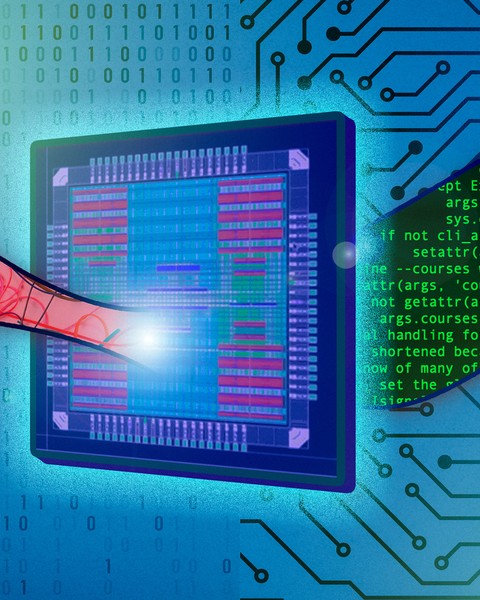Adam Zewe | MIT News Office
Every piece of data that travels over the internet — from paragraphs in an email to 3D graphics in a virtual reality environment — can be altered by the noise it encounters along the way, such as electromagnetic interference from a microwave or Bluetooth device. The data are coded so that when they arrive at their destination, a decoding algorithm can undo the negative effects of that noise and retrieve the original data.
Researchers at MIT, including AI Hardware principal investigator Muriel Médard, Boston University, and Maynooth University in Ireland have now created the first silicon chip that is able to decode any code, regardless of its structure, with maximum accuracy, using a universal decoding algorithm called Guessing Random Additive Noise Decoding (GRAND). By eliminating the need for multiple, computationally complex decoders, GRAND enables increased efficiency that could have applications in augmented and virtual reality, gaming, 5G networks, and connected devices that rely on processing a high volume of data with minimal delay.
Complete article from MIT News.
Explore
MIT Engineers Advance Toward a Fault-tolerant Quantum Computer
Adam Zewe | MIT News
Researchers achieved a type of coupling between artificial atoms and photons that could enable readout and processing of quantum information in a few nanoseconds.
The Road to Gate-All-Around CMOS
Monday, April 14, 2025 | 10:00 AM to 11:00 AM
In-Person
Haus Room (36-428)
50 Vassar Street Cambridge, MA
2025 MIT AI Hardware Program Annual Symposium
Monday, March 31, 2025 | 10:00 AM - 3:30 PM ET
Multiple Speakers




